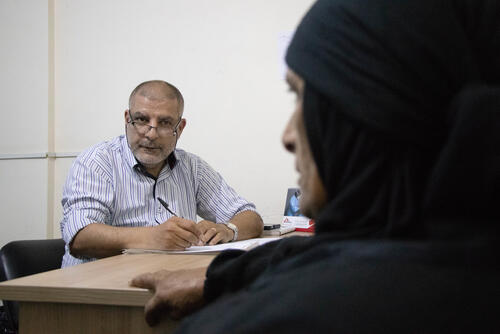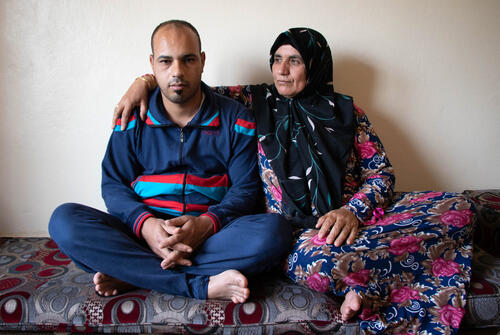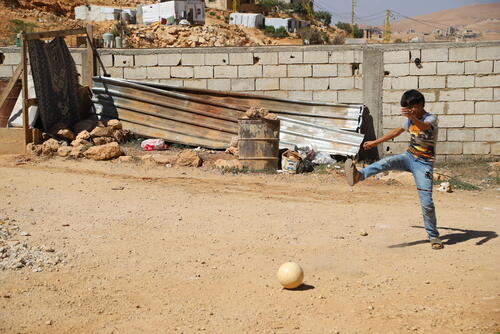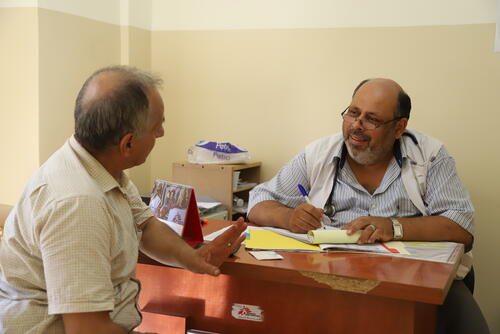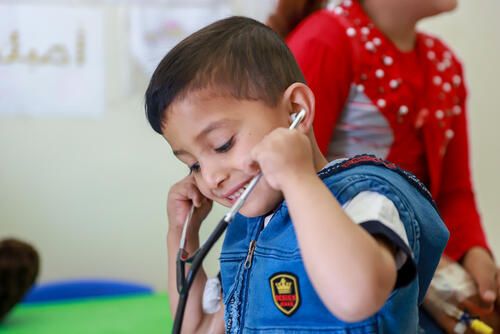In the small town of Wadi Khaled, in Akkar governorate (northern Lebanon), Khaldieh sits in her living room, listening to the counsellors with undivided attention. Despite the noisy distraction of her grandchildren playing nearby, she remains focused on the session at hand, asking questions as they arise. Her son’s health is her primary concern today, as it has been for almost a decade of her life.
Stigma leads to misconceptions and suffering
Khaldieh’s son, Hussein, was diagnosed with schizophrenia nine years ago, but getting to this diagnosis was not an easy journey.
“My son came back to Akkar after he spent six months working in Beirut. He struggled to get any sleep and became unaware of his actions or his surroundings. He could not recognise us anymore,” she says. “He used to run away from the house at night. Then I would go look for him and cry a lot. I suffered a lot.”
Hussein’s family were convinced that he was cursed, so Khaldieh took him to see several sheikhs (religious leaders) to “remove the jinn (evil spirit) from his body”. He was beaten in an attempt to remove the jinn, but it did not work.
That’s when Hussein’s mother took him to see a psychiatrist in Tripoli. He started getting better, but the long trip and transport costs soon became discouraging, and the treatment overwhelmingly unaffordable.
MSF services in Wadi Khaled
Later on, Khaldieh heard of the free mental health services provided by Médecins Sans Frontières (MSF) in Wadi Khaled, through an awareness session with an MSF counsellor. Hussein started receiving support from the mental health team there and has continued his treatment at the MSF clinic ever since.
The team host awareness sessions on psychological issues and how to deal with them, in addition to providing individual mental health consultations. A psychiatrist is also present at the MSF clinic, one day a week.
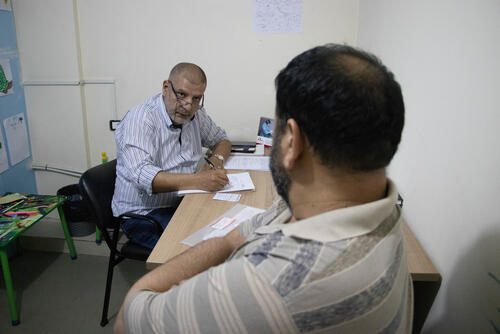
MSF patients in Wadi Khaled face tough living conditions and struggle with poverty, unemployment and restricted access to health services. And although mental health problems are common in the community, they are still faced with stigma.
This issue is further exacerbated by the fact that there is a clear lack of mental health professionals in Akkar governorate. These two factors in addition to a lack of community awareness make way for an increase in superstitious beliefs around mental health issues.
Mental health complements physical health
During a support session with Hussein’s family at their home, MSF counsellor Nathalie Said provides the family with information on his diagnosis, emphasising the importance of committing to the treatment plan. She answers all their questions in an effort to break down the stigma around mental health and encourages everyone to seek professional help as the need arises.
“If you break your arm, you have no choice but to put a cast on it for the fracture to heal, so why do we let stigma get in the way of mental healing?” Nathalie asks Khaldieh. “Mental health is just as important as physical health, and one complements the other.”
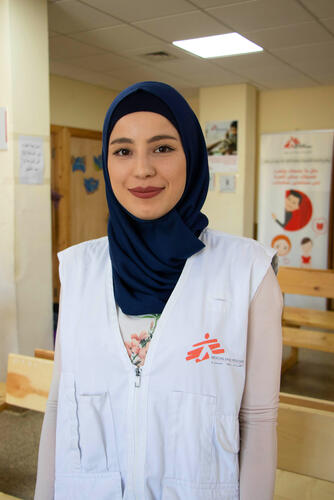
This sentiment is shared by Bushra, an MSF patient who is about to complete two years of treatment. She always walks into the MSF clinic with a big smile on her face.
Bushra experienced post-traumatic stress disorder and severe anxiety following the death of both her parents in the space of two months, at a time of escalating violence in the region.
“There was nothing wrong with me, but I suddenly found myself alone, controlled by fear and sadness,” she says.
Despite the scepticism she faced from family and friends, Bushra began attending individual mental health sessions with an MSF psychologist, and then treatment with a psychiatrist.
“When I first came to the clinic, I was in a very bad shape,” she says. “I drew hope from MSF’s mental health team from my first session. I would always wait eagerly for my next appointment.”
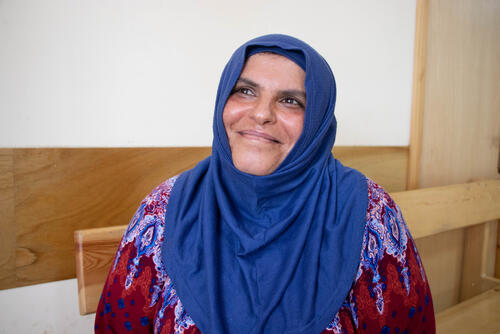
Every week, psychiatrist Dr Hassan Shamseddine travels more than 150 kilometres from Beirut to work at the MSF clinic in Wadi Khaled. He points out that stigma is a major challenge because it stops people from seeking help and can cause misconceptions.
However, he believes that MSF’s mental health services have had a positive influence on the community. “MSF’s work has contributed to changing people’s perception of mental illnesses,” he says. “Our patients and their caregivers started informing their relatives and neighbours of the mental health services available here and some are now even bringing them to the MSF clinic so they can get better.”
MSF has been working in Wadi Khaled since 2016 and is currently the only organisation in the area providing advanced mental health services, such as individual counselling, psychiatric consultations and medication.



